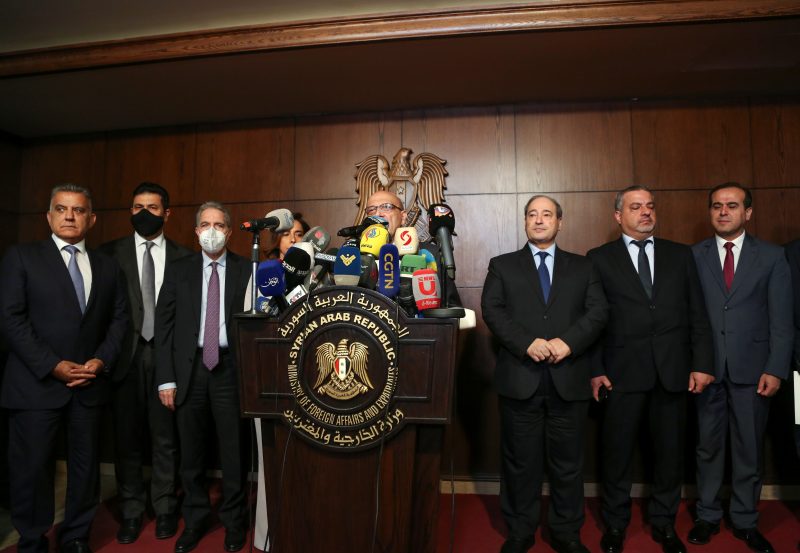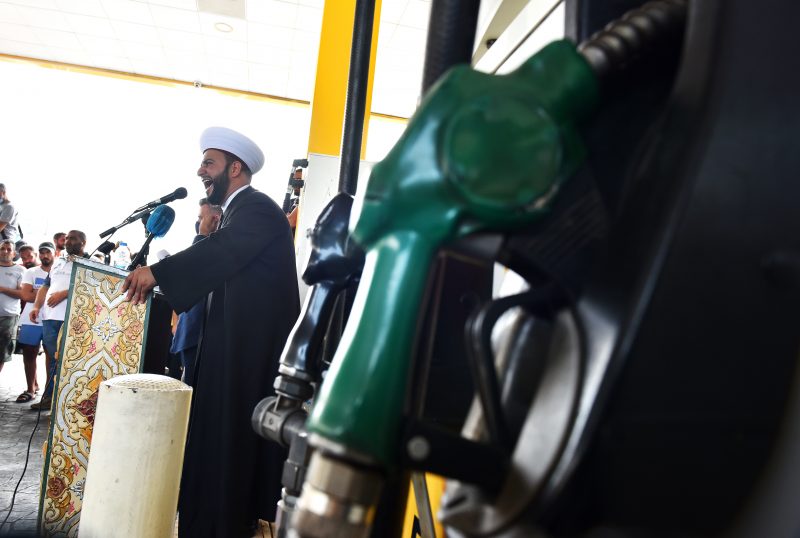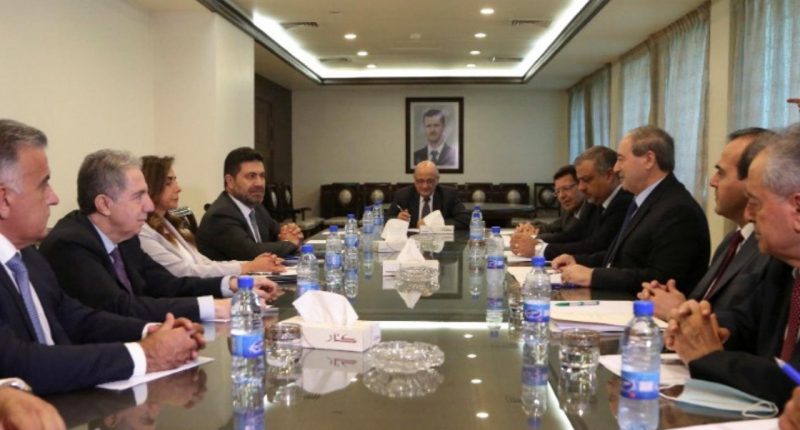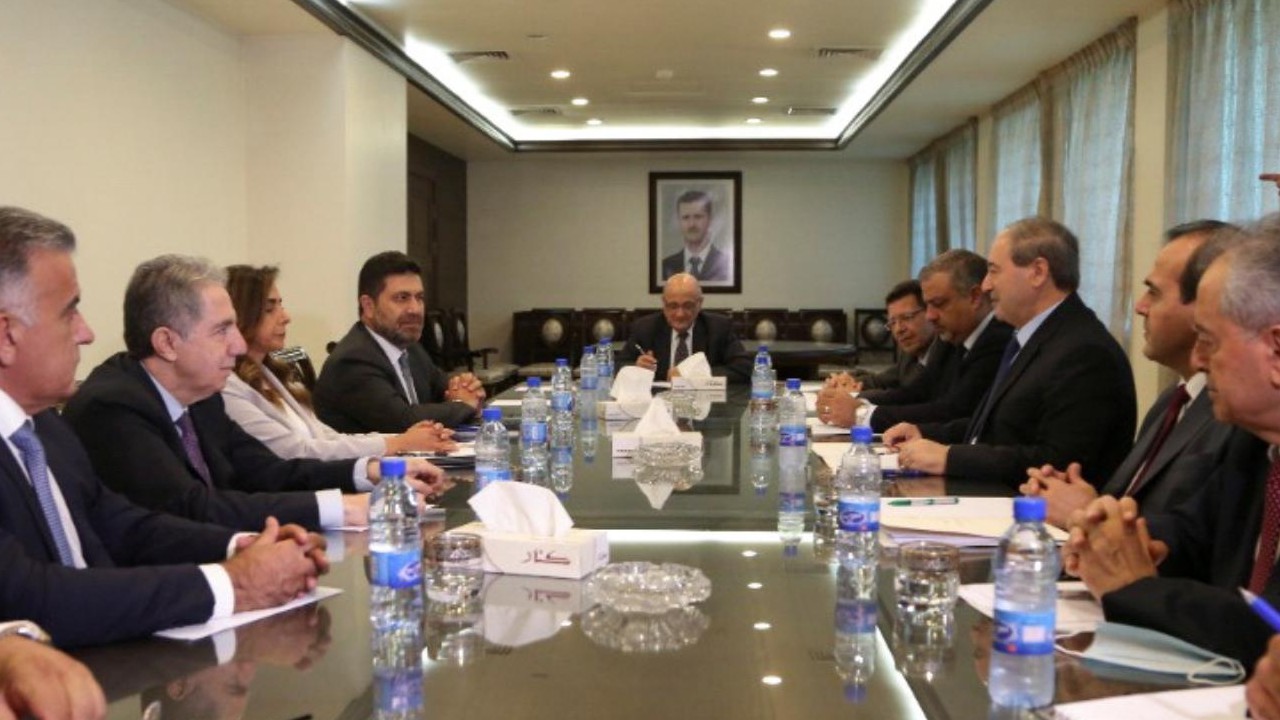- Jordan hosts delegates from Egypt and Syria to discuss US-backed plans to wire electricity to Lebanon
- Iranian backed Lebanese group, Hezbollah may jeopardise World Bank funding by importing oil from Iran
- Syrian, Iranian and Iraqi sanctions from the US may delay aid to Lebanon
- International relations within the Middle East to be pressured by the costs of fuel
Jordan will today host delegates from Egypt and Syria to discuss US-backed plans to wire electricity to Lebanon to ease the fuel and water crisis devastating the country.
The plan involves transporting gas from Egypt to a power plant in Jordan which will produce the electricity and wire it through Syrian powerlines into Lebanon.
Lebanese foreign minister Zeina Akar, who has taken on multiple roles since the fall of the previous government, encouraged the involvement of foreign aid in the pursuit of basic resources.
“We hope the project will move quickly because the Lebanese need it in these difficult circumstances,” he said.
On the weekend, Lebanese delegates and Syrian counterparts met in Damascus to determine how US sanctions on Syria would affect their involvement in the plan. Also considered was how the involvement of the Iranian-backed Lebanese group, Hezbollah, might compromise how the World Bank funds the aid plan.

Iranian complications
Last month Hezbollah said it was planning to import oil from Iran to ease the pressure. However, according to the Statistical Center of Iran, US sanctions on Iranian trade is one reason the cost of imports to Iran have risen by more than 50 per cent.
The SCI research suggests American sanctions have cost Iran access to the US dollar, forcing middlemen companies to swap oil in exchange for goods.
As the second-largest OPEC producer, Iran’s contribution to the production and distribution of OPEC oil is a significant factor in the strength of Iran’s currency, which has fallen by 50 per cent in the past year.
In addition to power cuts and the increased financial reliance on oil, the political complications between Iran and the US have delayed a US $6 billion (A$8.15 billion) energy settlement from Iraq.
Iraq is holding up the settlement of the energy bill to avoid accusations from the US of aiding Iran’s illicit import activity. This action by Iraq is further hindering Iran from recovering agency over its currency and foreign trade.
Hezbollah governance
As Lebanon becomes more desperate for resources, Hezbollah, a group considered by the US as a terrorist organisation, has held the most political power in the country since the fall of the government following the 2020 Beruit explosions.
According to The World Bank, Hezbollah’s involvement in importing oil from Iran might directly affect Lebanon’s access to funding for the multi-country gas to power project.
“We finance government programs to support the achievement of country development objectives, and support policy and institutional reforms of national and subnational governments by providing budget financing and global expertise,” The World Bank said in a statement.
The World Bank’s refusal to fund non-government powers or unstable governments has resulted in a withholding of funds from countries in political strife, such as Afghanistan and Venezuela.

Iraqi Involvement
Earlier this week, France’s TotalEnergies signed a multibillion-dollar deal with the Iraqi government to invest in oil, solar and gas energy developments in the country’s southern oil fields.
The investment’s first project would immediately reduce Iraq’s imports of energy from Iran, which it currently relies on for one third of its total consumption.
Without Iraq’s imports from Iran, Iran stands to lose up to US$6.3 billion (A$8.6 billion) of income, said Hamid Hosseini, the secretary-general of the Iran-Iraq Joint Chamber of Commerce. This puts more pressure on oil supplies to act as a supplementary currency until the US lifts its trade sanctions.
Trade between Iran and Iraq has declined, however Iranian Energy Minister Reza Ardakanian said trade between the countries would increase to the value of US$20 billion (A$27.1 billion) a year.
“The Islamic Republic of Iran is ready to support the export of Iranian engineering and technical services to Iraq by establishing a joint investment fund,” he said.
Lebanon in Limbo
US ambassador to Lebanon Dorothy Shea is adamant the US will try to lift sanctions on Syria to ensure their participation in Lebanon’s aid.
There has not yet been talk of how other nations will manage sanctions without jeopardising the plans to help Lebanon in the long term.
Lebanon is currently getting aid from the UN, which has increased its presence since the port explosions last year.







